“2020 served as a call-to-arms – not just social entrepreneurs, huge organizations, and the government – but for each and every one of us as citizens of this country and as community members of the world”
Supporting social entrepreneurs is one of the missions of makesense because we believe that they are one of the main actors to solve social issues through innovation. Here in the country, we have the makesense Academy which is an idea-stage startup incubator. We help the impact ecosystem by encouraging laypeople to pursue social entrepreneurship through our short-term programs (sensefiction, online sprints, etc.) and the 6-month incubation program where the entrepreneurs get customized support. In the past years, we’ve supported entrepreneurs who want to solve various issues such as improving access to health, fighting plastic pollution, and building sustainable cities.
To do so, we recognize that entrepreneurs must work hand-in-hand with the communities. Why?:
- To benefit from their unique insights.
Only the members of the community that you – a social innovator – are trying to help can know exactly what the challenges are in their context. In the spirit of human-centered design, it is imperative that they are involved. - To get their buy-in.
It is easier to sell a solution (or get it used by the intended users) if they were part of the building process. - To scale your impact in a grounded manner.
Having a group of people who are benefitting from the process of creating a solution to their socio-environmental challenge is more valuable than having a marketing plan.
For one, it is more impactful in the sense that you have the people themselves talking about the impact of your solution. And secondly, why recruit a marketing team or boost posts on social media when you have fifty people who are already staunch ambassadors and are raring and willing to share the news with others!
This is why the core of the makesense incubation program is our community development approach. We know that people in the community are the best sources and resources of solutions for the challenges that they face. It’s not about handing out charity or accessing money; the social entrepreneurs work with the community to learn from them and help empower them to be part of the solution.
Community as a Competitive Advantage: How Sinaya Cup became the most popular menstruation cup in the Philippines

Menstrual cups aren’t inherently “popular” as a product, especially in the Philippines. This is considered taboo and there is a lot of misinformation about how useful menstrual cups can be for women (and for the environment when you think about the amount of disposable menstrual products being saved from ending up in our landfills!).
As the first menstrual cup brand in the country, Sinaya Cup faced the challenge of marketing, sales, and ultimately – impact. Upon getting coached in the makesense Academy, the social enterprise started the Sinaya Tribe – a private Facebook group dedicated to reproductive health, women empowerment, body positivity, and body acceptance – the sales started picking up. Sinaya Cup was able to scale its impact by surrounding itself with an army of women empowerment advocates who were willing to try the product AND discuss it with even more women.
In just one year, Sinaya Cup grew to 6,500 users that helped benefit more than 1,200 young women from underprivileged communities through reproductive health education, body positivity training, and a Sinaya Cup kit of their own. Environmentally speaking, this means that more than 1,250,000 napkins were diverted from our landfills. All this impact, and counting, thanks to a movement of ambassadors that supported the social enterprise.
Community as a Testing Ground: How Bukid Fresh validated the demand for fresh produce from local farms straight to the customers

Building an e-commerce website in the Philippines can cost around $800 to $1,400- this cost is no joke for social entrepreneurs who are just starting out in the market.
And so, when Bukid Fresh decided they needed one to connect local farmers to customers in the metro city directly, makesense suggested that they test out the market readiness first. To do this, Bukid Fresh created a community of people who want to support our local farmers by patronizing farm-sourced products. It started out as a Facebook page that took orders from customers directly via the messaging function. After it reached approximately 1,000 orders per week, did the Bukid Fresh team knew it was the right time to invest in an e-commerce website of their own.
Not only did the social entrepreneurs save up money by validating the market need, but they also managed to build a loyal group of customers to serve as advocates for BukidFresh’s impact and products.
Community as a way to open doors (and wallets): How AUDEO got its first investment through community development practice

AUDEO is a startup that aims to help Filipinos achieve sustainable and affordable living through introducing an interlocking building system composed of 90% upcycled plastic called Bloqueplás. This technology is already being used in Latin America and there is a good case for it to be useful in the Philippines as well. What’s great about this solution is that it helps solve two different problems – our plastic waste problem and our housing problem. What’s not so great: it requires a big investment for a pilot to be built.
That was when makesense advised AUDEO to create a network of organizations that are working on either or both of those problems. This network of organizations was treated like a community, but instead of individuals representing their advocacies, it’s the company. We call this a coalition – a group of organizations and other organized groups who agree to work together, even temporarily, in a partnership to achieve a common goal.
Not only did AUDEO benefit from insights in the coalition about the housing challenges in the country, but the social enterprise also expanded its network to potential partners and investors who can make the pilot happen earlier than projected. Thanks to the community work of AUDEO, it got it’s first investment of $30,000 and is now preparing to build the first house made out of Bloqueplas in the country only after 7 months of being in existence as a social enterprise.
“Through community and synchronized social movements, we can make a tide strong enough to change the status quos. We must be humble enough to acknowledge that we are not the sole saviour of humanity for this climate crisis. “
Unprecedented crisis calls for unprecedented collaboration
2020 served as a call-to-arms – not just social entrepreneurs, huge organizations, and the government – but for each and every one of us as citizens of this country and as community members of the world. Social entrepreneurship alone is not enough anymore. No one organization can solve the systemic and complex challenges we have in the country. And with radical times, we must engage in radical collaboration.
Through community and synchronized social movements, we can make a tide strong enough to change the status quos. We must be humble enough to acknowledge that we are not the sole saviour of humanity for this climate crisis.
WE NEED TO WORK TOGETHER. How?
- Work with the community and stakeholders. You cannot create a solution without understanding the context and the challenge first.
- Work with other social entrepreneurs. Alone, you go fast. Together, we go far.
- Work with organizations. Public and private alike. They have the reach to scale your impact from the grassroots.
Read also
-
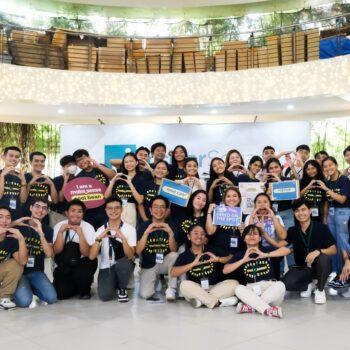 RISE For Youth Wins Award for Tackling Unemployment Among Filipino Youth
RISE For Youth Wins Award for Tackling Unemployment Among Filipino Youth -
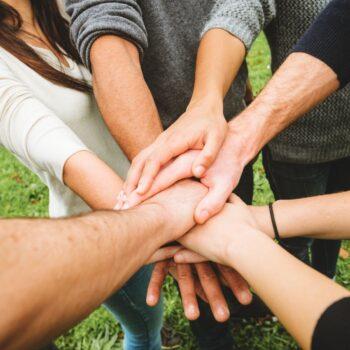 How Three Young Volunteers Help Their Generation Paint a Brighter Future
How Three Young Volunteers Help Their Generation Paint a Brighter Future -
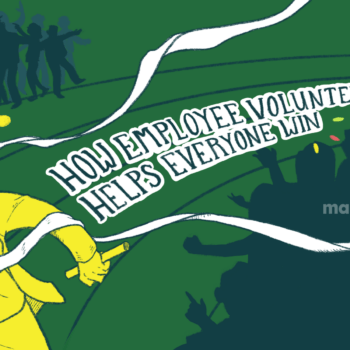 How Employee Volunteering Helps Everyone Win
How Employee Volunteering Helps Everyone Win -
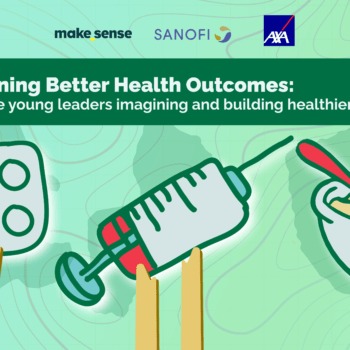 Imagining Better Health Outcomes: Meet the young leaders imagining and building healthier futures
Imagining Better Health Outcomes: Meet the young leaders imagining and building healthier futures -
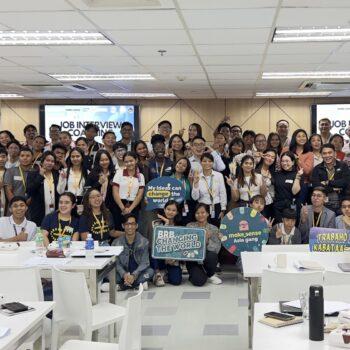 Designing CSR Programs That Actually Make a Difference
Designing CSR Programs That Actually Make a Difference
